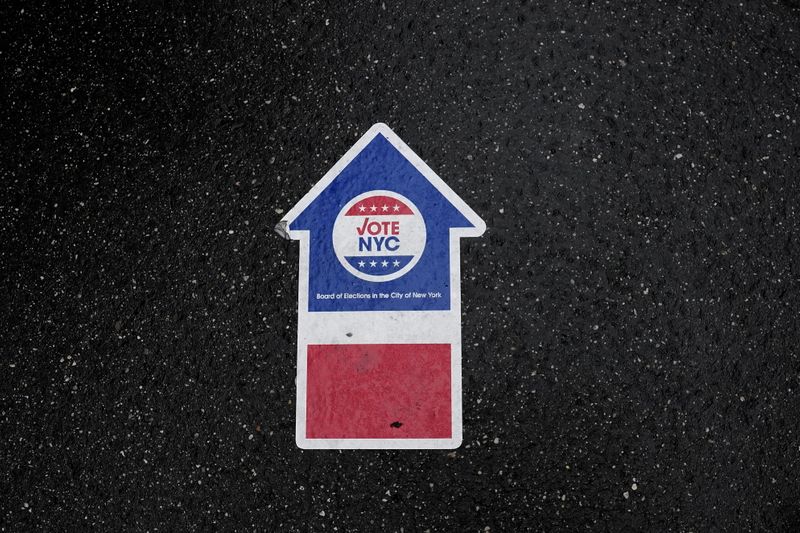By Tom Hals
(Reuters) - Nine years after completing a prison sentence for a gang-related shooting, Angel Sanchez cast his first ballot in a U.S. presidential election on Saturday, one of a growing number of Americans with felony convictions who regained the right to vote.
But the Miami resident had to overcome a dizzying array of administrative hurdles and he briefly feared he had unknowingly committed a felony by registering to vote without fully paying off court costs associated with his sentence.
"That just baffled me and angered me and scared me," he said. With the help of his probation officer, Sanchez, 38, ultimately determined he had actually overpaid.
The election between Republican President Donald Trump and Democratic challenger Joe Biden is the first since 1976 in which the number of Americans unable to vote because of a felony conviction has declined, according to the Sentencing Project, which advocates for criminal justice reform.
Felony convictions still disenfranchise about 5.2 million Americans, but that is down 15% since 2016, according to the group.
A record 60 million-plus voters have cast their ballots before Tuesday's formal Election Day because of the novel coronavirus pandemic, but many former felons like Sanchez say it can be difficult even though their voting rights are restored.
"You can technically have the right to vote but your registrar, if they don’t fully understand the law, they might still deny you," said Blair Bowie, a lawyer for the Campaign Legal Center advocacy group.
About 1.4 million people with felony convictions in Florida had their right to vote restored in January 2019 after the state amended it constitution. But the state required them to pay off restitution, fines and other costs associated with their sentence.
The 11th U.S. Circuit Court of Appeals ruled in September that the law did not amount to an unconstitutional poll tax.
But figuring out how much is owed can be tricky because of confusing and sometimes poor record keeping.
COURT COSTS
Sanchez, for example, had paid around $1,600 in court costs after leaving prison, but only discovered in July that the state's records still showed he owed money.
He was able to resolve it, but he said for many people with felony convictions the uncertainty would prevent them from voting.
Alfonzo Tucker, 53, of Tuscaloosa, Alabama, left prison in 1996 after serving a two-year sentence for assault and voted until he was told in 2013 he was ineligible unless he settled a $135 fee.
After he paid that, he said state officials told him he owed thousands of dollars more for a fee associated with a 1988 misdemeanor.
Tucker contacted legal advocates who helped determine he had actually overpaid by $131.
"They tell you that you owe $5,000 or $10,000 and that you have to have this case paid off and that case paid off," said Tucker. "And that's not the case. I'm a prime example."
Alabama's Secretary of State John Merrill said his office has worked to remove inconsistency between county officials.
"It's a problem if people have not questioned what their status is," Merrill said. "And if they have questioned it, then of course at that point it's corrected."
Bowie, the advocacy lawyer, cited a survey that showed that as few as 5% of people with felony convictions restore their voting rights in Tennessee due to administrative hurdles.
Page Dukes, 34, of Atlanta, Georgia, completed her 10-year sentence for armed robbery as well as her probation. By law, she said, she was not required to provide paperwork to prove she can register to vote. "In practice, it's not that simple."
Dukes eventually had to petition a court and got a judge's order terminating her probation, clearing the way to register.

"There is a huge part of our population that is unable to vote and that’s very intentional," she said.